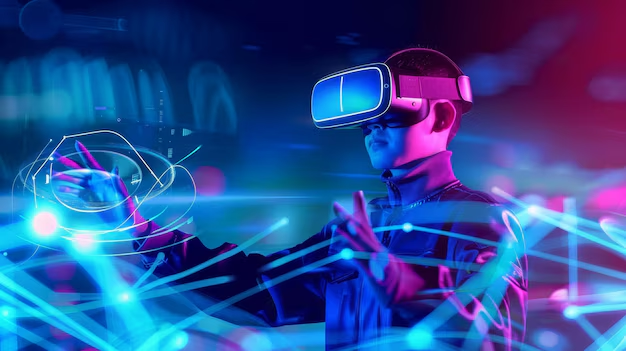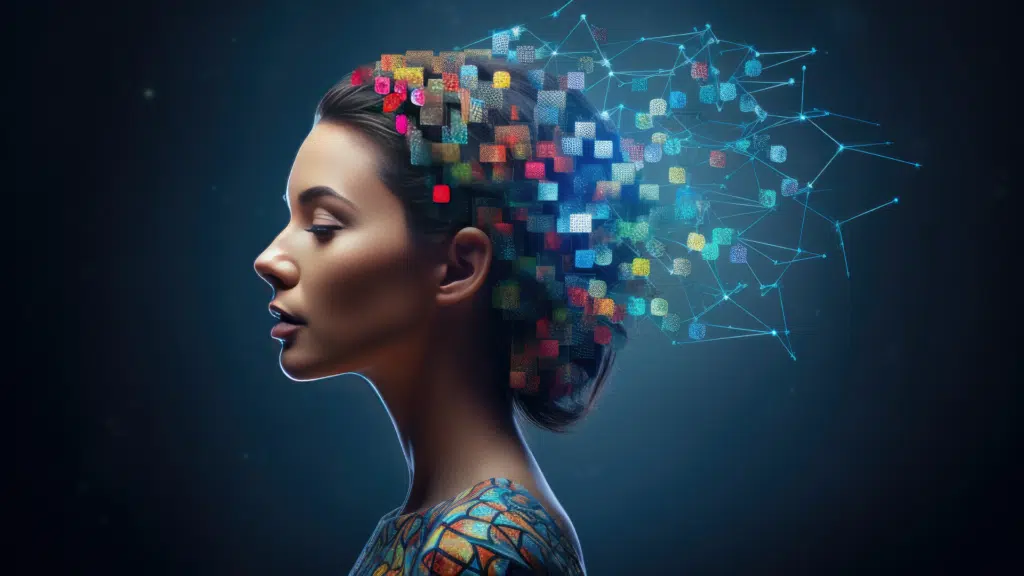The Rise of Emotional AI in Virtual Reality Therapy


In recent years, the healthcare landscape has dramatically transformed with the entry of Artificial Intelligence (AI) into the arena. Among the most promising innovations is the rise of Emotional AI in Virtual Reality (VR) therapy. This fusion of AI and VR is breaking new ground in treating mental health disorders, offering personalized care, and enhancing therapeutic outcomes. This blog post delves into how Emotional AI is revolutionizing Virtual Reality therapy, discusses its applications, and explores what the future might hold.
Understanding Emotional AI
Emotional AI, also known as affective computing, involves systems and devices that can recognize, interpret, and respond to human emotions. The technology scales new heights by integrating deep learning algorithms and natural language processing to understand the nuances of human emotional responses. In healthcare, this capability allows AI to offer unprecedented insights into patient moods and mental states, thereby enhancing treatment protocols.
The incorporation of Emotional AI into therapeutic practices is driving a shift from general to personalized treatment. By understanding patients’ emotional conditions, therapists can tailor interventions to individual needs, improving efficacy and outcomes.
Virtual Reality Therapy: A Brief Overview
Virtual Reality therapy leverages immersive VR technology to treat various psychological issues, including PTSD, phobias, anxiety disorders, and more. VR therapy places patients in a controlled virtual environment where they can safely confront and work through their challenges under professional supervision.
This method’s immersive nature allows for exposure therapy, a widely used treatment for anxiety disorders and PTSD, in a safer and significantly more controlled manner than traditional exposure therapy methods. VR therapy is marked by a level of customization that traditional therapy can’t match, making it an attractive option for both therapists and patients.
The Integration of Emotional AI and VR Therapy
The convergence of Emotional AI and VR therapy marks a significant step forward in mental health treatment. Emotional AI can assess patient reactions in real-time and adjust therapeutic interventions accordingly, providing a dynamic and responsive treatment environment. This adaptability results in a more engaging and constructive therapy experience.
1. Real-time Emotion Tracking:
Emotional AI systems embedded in VR therapy can monitor physiological indicators such as heart rate, facial expressions, and voice tone to gauge emotional responses during sessions. This information helps therapists understand patients’ mental states and modify therapies instantaneously.
2. Personalized Therapies:
By evaluating individual emotional responses, AI can customize therapeutic scenarios in virtual environments. For example, if a patient shows signs of distress, the AI can immediately switch the scenario to a calming virtual setting, facilitating quicker emotional stabilization.
3. Enhanced Data Collection:
The data collected through Emotional AI can provide significant insights into treatment efficacy over time. It generates comprehensive profiles of patient progress that healthcare professionals can analyze to optimize therapy plans further.
Examples of Emotional AI in VR Therapy
Several pioneering projects and applications highlight the potential of Emotional AI in VR therapy:
Oxford VR: This initiative uses VR to create simulated environments where patients can confront and overcome phobias with guided support. Emotional AI plays a crucial role in customizing levels of exposure based on patient responses.
Mimerse: A Swedish startup, Mimerse, is focusing on creating VR applications for mental wellness. Their “Itchy” application uses VR to help patients with arachnophobia by combining simulated exposure with emotional analytics to facilitate desensitization.
SimSensei: A collaboration between the University of Southern California’s Institute for Creative Technologies and DARPA, SimSensei utilizes Emotional AI to track emotional states in real-time, providing a robust platform for mental health assessments that enhances traditional VR therapy techniques.

Challenges and Ethical Considerations
Despite its potential, the integration of Emotional AI in VR therapy also poses challenges:
1. Data Privacy: Emotional AI systems gather sensitive data that require rigorous protection protocols to ensure privacy and security.
2. Dependence on Technology: Over-reliance on AI and VR might pose risks if not complemented by human oversight. Patients may become dependent on these technologies, complicating their reintegration into real-world scenarios.
3. Ethical Concerns: The emotional manipulation, even with therapeutic intent, necessitates strict ethical guidelines to prevent misuse and ensure patient well-being.
Conclusion: The Future of Emotional AI in VR Therapy
The rise of Emotional AI in Virtual Reality therapy represents a transformative shift in healthcare, offering significant advancements in the treatment of mental health disorders. By providing personalized, engaging, and adaptive treatments, this technology holds the promise of making therapy more accessible and effective. However, navigating the associated challenges—particularly around privacy, ethics, and technology dependence—is crucial for sustainable progress.
Looking ahead, continued research, cross-disciplinary collaborations, and regulatory frameworks will be vital in harnessing Emotional AI’s full potential while safeguarding patient rights and interests. As Emotional AI continues to evolve, it is poised to redefine therapeutic landscapes, ushering in an era of empathy-driven healthcare solutions.









